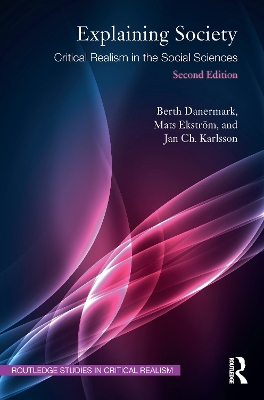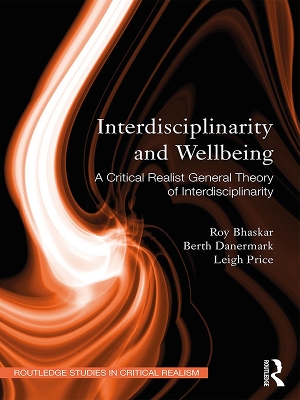Routledge Studies in Critical Realism
3 total works
Explaining Society
by Berth Danermark, Mats Ekstroem, and Jan Ch Karlsson
Fully revised, with an updated bibliography and new, relevant illustrative examples based on work inspired by critical realism, this new edition of Explaining Society constitutes an up-to-date resource connecting methodology, theory, and empirical research. Including discussions of more recent scholarship in the field which connects critical realism with interdisciplinary research, this second edition also clarifies concepts – such as retroduction and retrodiction – so as to render them consistent with developments within critical realism, which are covered in a new chapter. An accessible account of the nature of society and social science, together with the methods used to study and explain social phenomena, Explaining Society will appeal to scholars of sociology, philosophy, and the social sciences more broadly.
Interdisciplinarity and Wellbeing
by Roy Bhaskar, Berth Danermark, and Leigh Price
Such a general theory is only possible if we assume that there is more to being (ontology) than empirical being (what we can measure directly). Therefore, the unique approach to interdisciplinarity applied in this book starts from ontology, namely that there is a multimechanismicity (a multiplicity of mechanisms) in open systems, and then moves to epistemology. By contrast, the mainstream approach, which fails to acknowledge ontology, is “unserious” and tends to result in a methodological hierarchy, unconducive of interdisciplinarity, in which empiricist science is overtly or tacitly assumed to be the superior version of science.
This book is primarily aimed at those people interested in improving health and wellbeing – such as researchers, policy-makers, educators, and general practitioners. However, it will also be useful to academics engaged in the broader academic debate on interdisciplinary metatheory.


